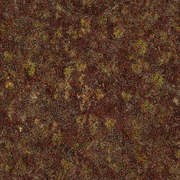Difference between revisions of "Tundra"
Jump to navigation
Jump to search
Beastenator (talk | contribs) |
m (We tested this after comparing old map dumps and how one area of tundra tiles kept turning grass and not believing some player would be doing it. There are oaks there and so we did own tundra area where we planted oaks next to lingonberry bush and they did turn dirt tile.) |
||
| (18 intermediate revisions by 14 users not shown) | |||
| Line 1: | Line 1: | ||
| + | {{terrain | ||
| + | |name=Tundra | ||
| + | |speed=unknown | ||
| + | |type=Natural | ||
| + | |playermade=Yes | ||
| + | |underground=No | ||
| + | |creation=N/A | ||
| + | |material=dirt | ||
| + | |method=dig | ||
| + | }} | ||
[[CDB|Main]] / [[:Category:Terrain|Terrain]] / '''{{PAGENAME}}''' | [[CDB|Main]] / [[:Category:Terrain|Terrain]] / '''{{PAGENAME}}''' | ||
==Description== | ==Description== | ||
| − | Tiles where the tree growth is hindered by low temperatures and short growing seasons. It is mostly found on north and south end of the world. | + | ''Tiles where the tree growth is hindered by low temperatures and short growing seasons. It is mostly found on north and south end of the world.'' |
| − | + | ==Creation== | |
| + | * [[Ice pillar]] cast on [[grass]] is capable of turning the tile to tundra, but this is a slow and difficult process. | ||
| + | * Tundra tiles can also be created with a large quantity of [[transmutation liquid]] on [[moss]] tiles. | ||
| + | * Tundra can spread onto adjacent [[dirt]] tiles at a slow rate. | ||
| + | |||
| + | ==Usage== | ||
| + | * [[Foraging]] on tundra is possible at 33 skill. | ||
| + | * [[Lingonberry bush|Lingonberry bushes]] spawn naturally (and exclusively) on this terrain. | ||
| + | * A tundra is often a good hunting spot because animals tend to walk to open places, however tundra does not spawn animals. | ||
| + | |||
| + | == Notes == | ||
| + | * Tundra tile can turn back to dirt tile after [[Lingonberry bush]] gets killed by [[oak]] or [[willow]] tree. | ||
| + | * To remove Tundra, you must pack or flatten it. Digging will not work. | ||
| + | * '''Tundra should be treated with care''', as it very hard to create. It is advisable to avoid destroying tundra tiles unless there is a compelling reason for their removal. | ||
| + | *The following types of [[Resource nodes]] can spawn on Tundra: [[Alpine brush]], [[Animal burrow]], [[Mineral debris]], [[Roots and bulbs]], [[Mints]], [[Briar patch]], [[Umbellifers]], [[Nightshades]] and [[Wild grasses]]. | ||
| − | |||
| − | |||
[[Category:Terrain]] | [[Category:Terrain]] | ||
[[Category:Babel/T]] | [[Category:Babel/T]] | ||
Latest revision as of 07:05, 22 May 2024
| Properties |
|---|
|
| Creation |
|
| Material |
Contents
Description
Tiles where the tree growth is hindered by low temperatures and short growing seasons. It is mostly found on north and south end of the world.
Creation
- Ice pillar cast on grass is capable of turning the tile to tundra, but this is a slow and difficult process.
- Tundra tiles can also be created with a large quantity of transmutation liquid on moss tiles.
- Tundra can spread onto adjacent dirt tiles at a slow rate.
Usage
- Foraging on tundra is possible at 33 skill.
- Lingonberry bushes spawn naturally (and exclusively) on this terrain.
- A tundra is often a good hunting spot because animals tend to walk to open places, however tundra does not spawn animals.
Notes
- Tundra tile can turn back to dirt tile after Lingonberry bush gets killed by oak or willow tree.
- To remove Tundra, you must pack or flatten it. Digging will not work.
- Tundra should be treated with care, as it very hard to create. It is advisable to avoid destroying tundra tiles unless there is a compelling reason for their removal.
- The following types of Resource nodes can spawn on Tundra: Alpine brush, Animal burrow, Mineral debris, Roots and bulbs, Mints, Briar patch, Umbellifers, Nightshades and Wild grasses.
